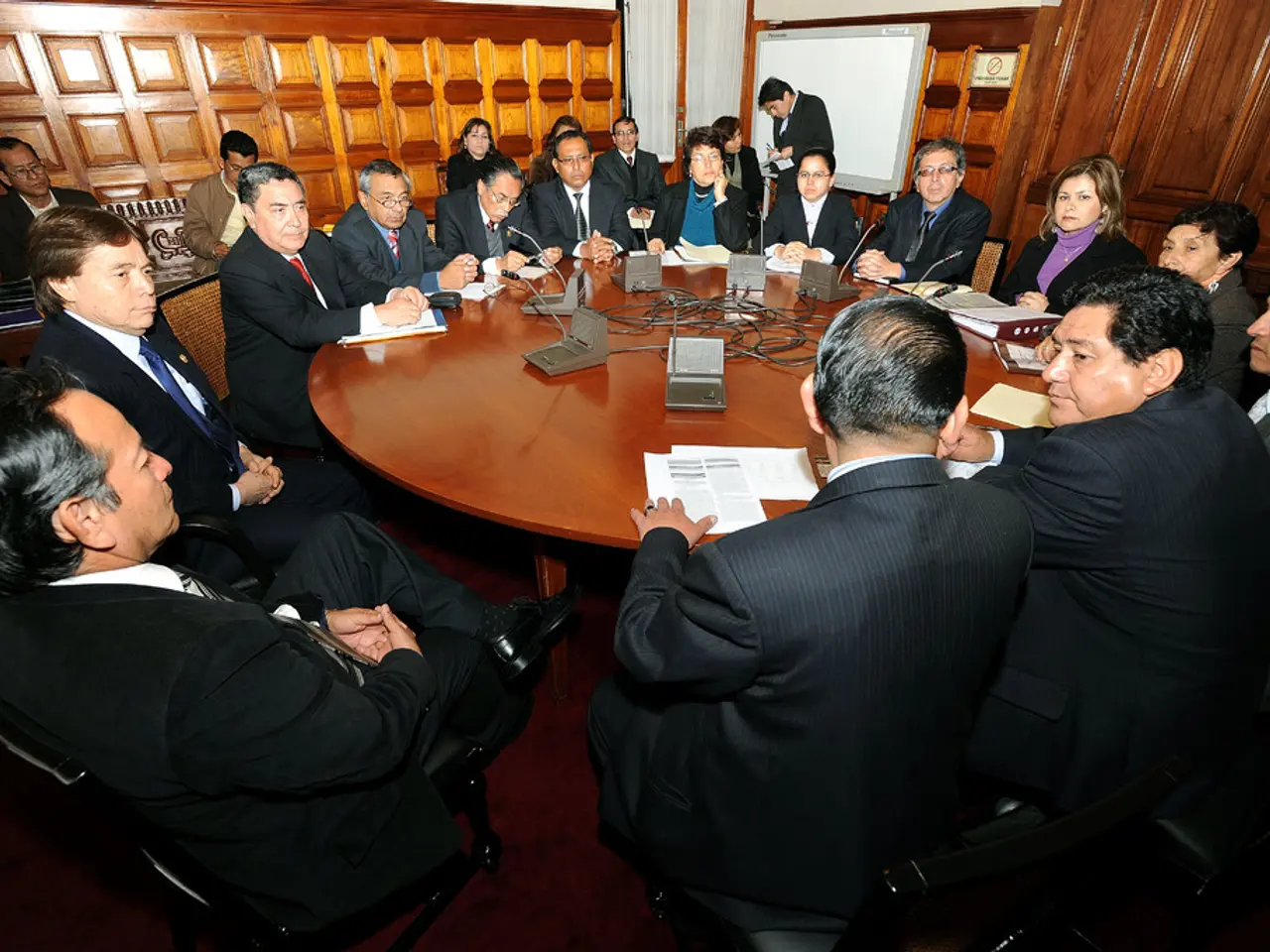Union's deputy leader of the SPD (Social Democratic Party), Eichwede, emphasizes the necessity for the Union to fulfill its pledge concerning the appointment of judges. - EU Legislators Advocate for Greater Access to EU for EU Residents
The German Bundestag is grappling with a significant political challenge as it seeks to fill three key judicial positions at the Federal Constitutional Court. This situation, marked by allegations and coalition disagreements, has led to calls for a special session of the parliament to address the issue during the summer recess.
The crux of the controversy revolves around the postponement of the vote on electing one candidate, Frauke Brosius-Gersdorf, nominated by the SPD, who faces plagiarism allegations. This decision has sparked dissent, particularly within the ruling Christian Democrats (CDU/CSU), with some members questioning her qualifications despite initial endorsement from party leaders, including Chancellor Friedrich Merz.
In response to the postponement and ongoing disagreements, the Greens, led by co-fraction leader Britta Haßelmann, have called for a special session of the Bundestag. They argue that maintaining coalition stability and legislative continuity is crucial, and prolonged delays could undermine the court’s credibility and the coalition’s ability to govern effectively.
The delay has revealed fractures within the ruling coalition. While union faction leaders campaigned for Brosius-Gersdorf's election, internal opposition and public debates have undermined consensus. SPD politicians have criticised the Union for hesitating on difficult decisions, reflecting deeper challenges in cooperative governance.
The unresolved appointments to the Federal Constitutional Court can impact the judiciary’s functionality and public trust in constitutional oversight. A special session would symbolise an effort to overcome coalition discord and uphold Germany's legal institutional stability. However, the situation remains fluid, with coalition leaders still optimistic about reaching an agreement before the planned session.
Notably, SPD Deputy Fraction Leader, Katarina Barley, has rejected Chancellor Merz's argument that the decision was a matter of conscience. She has emphasised the need for an agreement with the Union to create "clear conditions" for the judge selection. The Union apparently has "misunderstandings" that need to be cleared up.
Chancellor Merz has announced talks with the SPD regarding the judge selection, acknowledging the need for resolution. The Greens have reiterated their demand for a special session to fill the judge positions at the Federal Constitutional Court, emphasising that this is a matter of respect for the proposed candidates and respect for the Federal Constitutional Court.
The postponement of the judge elections has reportedly thrown the coalition into a "serious crisis." As the Bundestag navigates this complex political landscape, the stakes are high, with the future of German governance and the Federal Constitutional Court’s credibility hanging in the balance.
- The European Parliament, the Council, and the Commission are closely monitoring the political crisis in Germany, as the appointments to the Federal Constitutional Court have become a matter of policy-and-legislation and general news in the wider European politics.
- Amidst the ongoing disagreements and coalition discord, the German Bundestag's decision on the judge elections could have significant implications for the country's politics and the credibility of its judiciary, affecting both its internal governance and its standing in the European Union.






